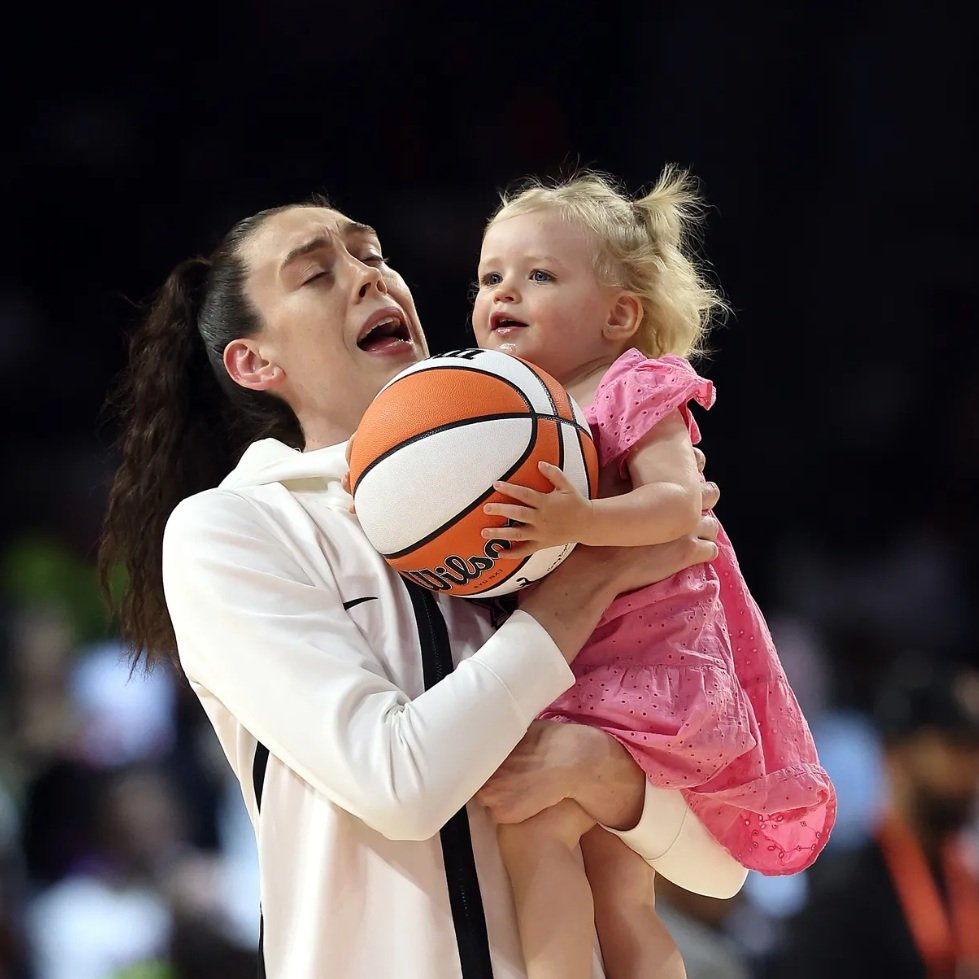From Sideline to Strategy: What Employers Can Learn About Child Care from Women’s Sports
When professional basketball player Chelsea Gray arrived at training camp with her infant son and wife, she expected to juggle family and sport, as she always had. Instead, she walked into a facility complete with vetted child care, a nursing room, and a playroom stocked with toys and a mini hoop.
“We were just like, ‘there’s no way,’” Gray told Business Insider, reacting to the support system built by Unrivaled, a new three-on-three league. “Feeling like we can have this much access.”
That access wasn’t an accident. It was a strategy.
Unrivaled, co-founded by WNBA stars Napheesa Collier and Breanna Stewart, has centered care and family in the business model. The result is a product that’s not just competitive—it’s compelling to fans, sponsors, players, and employers alike.
“Unrivaled is a beacon in the way it’s made a clear and inspiring business case for centering players and their power as the business,” said WNBA agent Lindsay Kagawa Colas in an interview with MPR News. “Players and agents operate as partners and sponsors and have responded because the product is diverse, authentic, and ultra-engaging. The good news is that the success of Unrivaled is modeling is not zero sum. It’s a template and an invitation.”
For the half-dozen parents playing in the league, Unrivaled offers financial stipends and a state-of-the-art child care program open to all players, whether they’re on the court that night or not.
“Every game night, whether you’re playing or not, the players can come, they can drop their kids off,” said league organizer Alex Bazzell as part of the MPR News piece. “If you don’t play, you can go on a date night. We just want to build a family environment.”
It’s more than convenient. It’s a model for how organizations can approach caregiving as core business infrastructure.
Performance Model Rooted in Care
Unrivaled is not alone. Athletes Unlimited (AU), a multi-sport women’s league also operating as a Public Benefit Corporation, is setting a new standard by embedding care into its operational DNA.
A Public Benefit Corporation (PBC) is a legal business structure that allows a company to pursue both profit and a stated public benefit—such as social or environmental good—as part of its mission. PBCs are accountable not just to shareholders but also to employees, communities, and other stakeholders, ensuring that purpose and impact are built into the organization’s long-term strategy.
AU’s athlete-first approach reflects this model. Its family support systems include:
Child care stipends for both travel and at-home needs
Paid parental leave
Flexible accommodations during pregnancy
No penalties to contracts or eligibility for athletes who are parents
This isn’t just about supporting women. It’s about enabling performance.
Why It Works: The Business Case for Employers
Professional women’s sports show a simple truth: when employees know their families are supported, they perform better. The Institute for Women’s Policy Research reports that companies offering child care support experience:
Reduced absenteeism
Higher productivity
Better retention
Greater engagement and loyalty
Leagues like AU and Unrivaled see it clearly. With child care covered, athletes stay focused and engaged. Whether you run a startup, hospital, factory, or nonprofit, the message is simple: care drives performance.
A Blueprint for All Workplaces
What makes these models powerful is their adaptability. Employers of all sizes can take lessons from sports and apply them to their teams.
In women’s leagues:
Parents bring their children on-site with trusted caregivers
Facilities are designed with families in mind (e.g., playrooms, nursing areas, quiet spaces)
Policies account for real-life parenting, not just the legal minimum
In other workplaces, that could look like:
On-site or cooperative child care models (including mobile or pop-up options)
Scalable stipends or reimbursement policies based on need
Normalizing parenting among leadership, staff, and across genders and identities
If these supports help athletes win championships, they can help your teams meet business goals, retain top performers, and attract new talent.
Why It Matters Now
Child care costs in the U.S. remain high—between $6,552 and $15,600 annually, according to 2022 data. Many working parents, especially women, reduce hours or leave the workforce due to lack of care options.
This isn’t just a personal issue. It’s a talent pipeline and equity issue. And it’s one employers can actively address.
As Arizona State University sports historian Victoria Jackson reminds us:
“Child care isn’t a women’s issue only. Child care is an every parent issue.”
Your Next Move
Women’s sports are offering a clear, proven model for integrating care into the workplace—and they’re doing it in high-performance environments.
When employers invest in caregiving, they retain talent, enhance loyalty, and build workplace cultures where people can bring their full selves to the job.
So, what’s your team’s plan?
Ready to Take Action?
Download the Policy Brief for Employers. Inside, you’ll find:
Key data on the business case for child care support
Real-world examples from leading sports organizations
Practical ideas to start or scale family-friendly policies in any workplace
At Rural Pathways, we help employers turn insights into action. Whether you lead a rural cooperative, urban startup, healthcare system, or school district, we’re here to support your path to a care-centered workplace.
Contact us to request personalized employer consultations.
Child care isn’t a luxury. It’s a strategy. Let’s build the future of work—with care at the center.
Citation: Anderson, Charity & Gilpin, Staci. (2025). From Sideline to Strategy: What Employers Can Learn About Child Care from Women’s Sports. Rural Pathways News.
Reactions? Please email us your thoughts or join the conversation on LinkedIn or Facebook.





